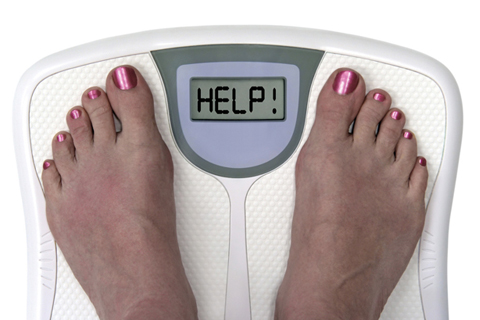Diet and Exercise—What Really Works?

Myth or Fact?
The only thing needed to maximize muscle development and strength after exercise is a protein supplement.
Widely held as the post-workout boost, many people, including trainers, will tell you to consume protein after your workout concludes. This statement and advice is false.
Yes, you do need a supplement post-workout, but research has shown that a carbohydrate/protein mixed supplement is much more powerful for stimulating muscle development and strength than a protein-only supplement. And why is that the case? Well, scientifically, the rate of muscle growth or protein accretion is the difference between the rate of muscle protein synthesis and muscle protein breakdown. The greater the rate of protein synthesis and the lower the rate of protein breakdown, the greater the rate of muscle growth. Muscle protein synthesis is activated by resistance exercise, but it also increases the rate of protein breakdown to about the same degree, resulting in no increase or very little increase in muscle growth. Consuming a protein supplement post-exercise activates protein synthesis above that produced by exercise alone. Therefore, the rate of protein synthesis exceeds the rate of protein breakdown and results in an increase in muscle mass. However, when carbohydrate is added to the post-exercise supplement, this increases blood insulin levels, lowering the rate of protein breakdown and resulting in an even greater rate of protein accretion, muscle development, and strength. It is important to supplement with a carbohydrate/protein supplement soon after your workout because this is the time when the muscle is most responsive to nutrient intake. To maximize protein accretion, the post-exercise supplement should consist of about 25 grams of protein and 50 grams of carbohydrate. But don’t forget that three well-balanced meals are also important for developing muscle and strength.
Myth or Fact?
Adding L-arginine and other amino acids to a workout supplement will boost nitric oxide levels during resistance exercise training and create a better “pump.”
Again, this statement is false. Although popular in vitamin and nutrition shops, products that attempt to increase nitric oxide with amino acids such as L-arginine do not work. Contrary to what the marketing for these products might tell you, your body already has more-than-adequate L-arginine levels, and supplementing with L-arginine products will not increase nitric oxide levels. More importantly, nitric oxide synthase, the enzyme that converts L-arginine to nitric oxide, needs oxygen to function and, in the exercising muscles, there is a shortage of oxygen that makes that enzyme non-functional. However, there is a second way to increase nitric oxide and that is through the conversion of nitrate to nitric oxide, which works very well before exercise as well as during exercise, typically when oxygen availability is low. Nitrates are naturally found in the soil and concentrated in vegetables as they grow. Vegetables such as beets and spinach are high in dietary nitrates, and eating them several hours prior to exercise can increase the body’s ability to produce nitric oxide during exercise. You my have seen or heard about elite athletes supplementing with beet juice last year during the Summer Olympic Games. However, you have to drink a lot of beet juice to benefit from the effects. Typically, athletes will consume it several days in a row prior to an event; however, consuming that much beet juice can cause digestive issues. I recently began working with a company here in Austin called Neogenis Sport that has developed a concentrated organic beet shot called BeetElite NeoShot. BeetElite is crystallized beet root that you simply mix with 4–6 ounces of water 30 minutes before exercise. One ten-gram packet delivers the same nitric oxide potential as one liter of beet juice (or six whole beets). Utilizing Neogenis Sport’s patented technology, BeetElite’s dietary nitrate and nitrite convert to nitric oxide three times faster than beet juice, which results in sustained nitric oxide levels for up to six hours.
Myth or Fact?
You should not snack before bedtime.
Well, truthfully, this is a bit of a trick question. The answer actually depends on your fitness goals. For individuals who are trying to lose weight, reducing calories at night is beneficial. Research shows that those individuals who eat a hearty breakfast and the majority of their daily calories by midday better maintain their weight and are much less likely to be overweight. Eating a good breakfast helps reduce appetite over the course of the day and makes dieting more tolerable. However, if you are trying to gain muscle mass and strength, recent research indicates that a high protein snack prior to bedtime increases protein synthesis while sleeping and speeds muscle development. However, for this nutritional strategy to work best, it is recommended that individuals perform their workout in the afternoon or after dinner. The snack should be predominately high in protein with little fat or carbohydrate. Consider about 3 to 4 ounces of chicken breast, cheddar cheese, beef jerky, two medium-sized boiled eggs, or a cup of kidney beans.
These are just three of the many myths out there. I hope we have helped break through fact and fiction and given you the real reasons behind the answers. Although you will hear a lot of poor nutrition advice constantly circulating thoughout the gym, workout centers, and especially on the Internet, a lot of this information is fad driven. Whenever you have questions regarding sports nutrition and want sound nutritional advice, don’t rely on a buddy in the gym or even a trainer with no formal nutrition background. Searching the Internet and reading sports nutrititon books can be very informative, but be cautious and make sure the information is from a reliable source. By far the best avenue to pursue information on sports nutrition is to contact a sports nutritionist or registered sports dietician. Or, send a Letter to the Editor (leah@austinfitmagazine.com) with your question and we'll keep busting those myths for you!






